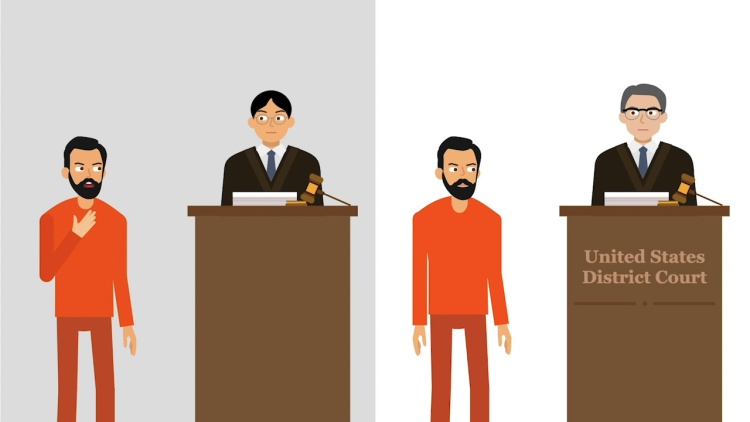Wainwright v. Sykes
United States Supreme Court
433 U.S. 72, 97 S.Ct. 2497, 53 L.Ed.2d 594 (1977)
- Written by Sarah Venti, JD
Facts
A state statute required that a defendant make an objection at the time a piece of evidence was offered for submission during trial. Sykes (defendant) failed to comply with this state contemporaneous-objection rule. He claimed that testimony was admitted at trial in violation of rights under Miranda v. Arizona, 384 U.S. 436 (1966). Sykes was convicted at trial. At his appeal, Sykes failed to raise the issue of the admissibility of the statements taken in violation of Miranda. Only after the appeal did he file a motion in the trial court to vacate the conviction because of the inculpatory statements. Sykes also filed petitions for habeas corpus in the state court of appeals and the state supreme court. All of these efforts failed. Sykes petitioned for federal habeas corpus review. The United States Supreme Court granted certiorari.
Rule of Law
Issue
Holding and Reasoning (Rehnquist, J.)
Dissent (Brennan, J.)
What to do next…
Here's why 904,000 law students have relied on our case briefs:
- Written by law professors and practitioners, not other law students. 47,100 briefs, keyed to 995 casebooks. Top-notch customer support.
- The right amount of information, includes the facts, issues, rule of law, holding and reasoning, and any concurrences and dissents.
- Access in your classes, works on your mobile and tablet. Massive library of related video lessons and high quality multiple-choice questions.
- Easy to use, uniform format for every case brief. Written in plain English, not in legalese. Our briefs summarize and simplify; they don’t just repeat the court’s language.





